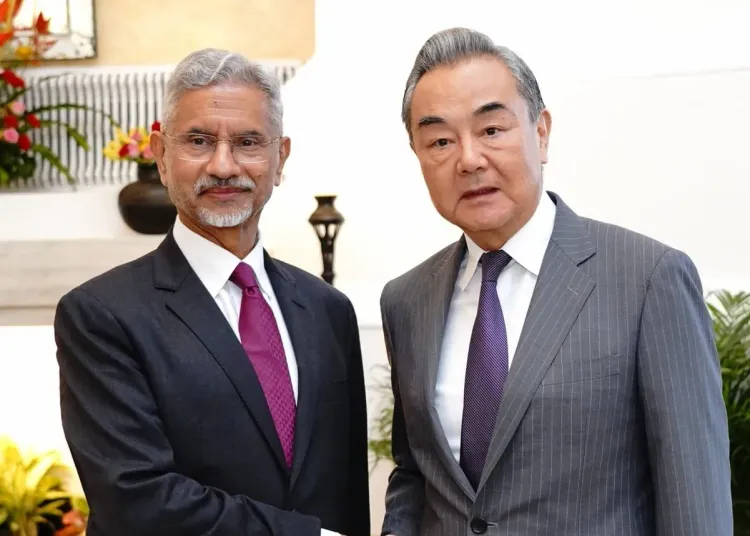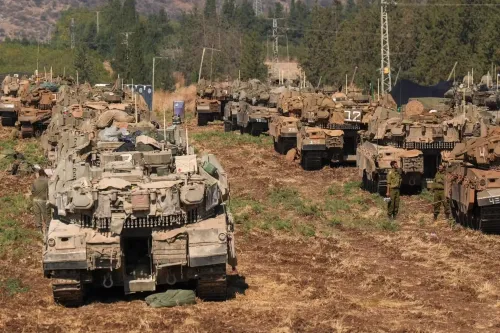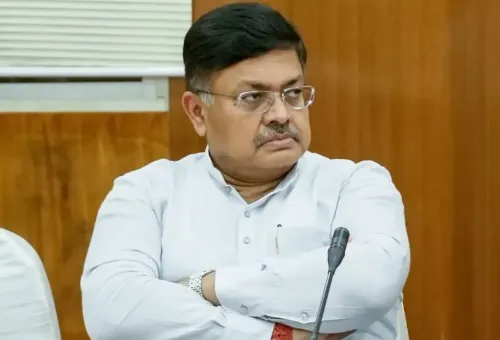How Are India and China Shaping Their Future Relations?

Synopsis
Key Takeaways
- India and China emphasize mutual support for international events.
- Commitment to enhance bilateral cooperation through multilateral platforms.
- Resumption of direct flights to improve connectivity.
- Focus on economic collaboration despite geopolitical challenges.
- Joint efforts to maintain peace in border areas.
New Delhi, Aug 19 (NationPress) In a remarkable diplomatic engagement, External Affairs Minister S. Jaishankar and Chinese Foreign Minister Wang Yi conducted extensive bilateral discussions in New Delhi on Tuesday. The Ministry of External Affairs (MEA) reported that the talks were “positive, constructive, and forward-looking,” addressing bilateral, regional, and global issues of shared concern.
The MEA released a document outlining the outcomes of the meeting, stating, “Both sides emphasized that the strategic guidance from the leaders of India and China is vital for the evolution of India-China relations. They concurred that a stable, cooperative, and progressive bilateral relationship is in their mutual interest to fully realize their developmental potential. Furthermore, they agreed to diligently implement the significant common understandings reached by the two leaders and promote the sustained, healthy, and steady advancement of India-China relations.”
A notable aspect of the meeting was the mutual endorsement for major diplomatic events organized by both countries. The Chinese delegation expressed support for Prime Minister Narendra Modi’s forthcoming visit to Tianjin for the Shanghai Cooperation Organisation (SCO) Summit, while India reiterated its “full support” for the Chinese SCO Presidency and anticipated a successful SCO Summit with beneficial outcomes.
Both nations also committed to enhancing future collaboration through significant multilateral platforms. The document highlighted, “The Chinese side will assist India in hosting the 2026 BRICS Summit, and the Indian side will support China in hosting the 2027 BRICS Summit.”
In a bid to normalize and deepen official engagements, “both sides agreed to explore and resume various official bilateral dialogue mechanisms and exchanges to enhance cooperation and address each other’s concerns and properly manage differences,” including the Third Meeting of the India-China High-level Mechanism on People-to-People Exchanges to be held in India in 2026.
As both nations near a significant milestone in their diplomatic ties, the MEA confirmed, “both sides agreed to continue supporting each other in organizing events in 2025 to celebrate the 75th anniversary of diplomatic relations between India and China.”
In a boost to connectivity and interpersonal exchanges, the ministers also pledged to expedite the resumption of direct flights between India and mainland China. They committed to finalizing an updated Air Services Agreement and facilitating visa processes for tourists, businesses, media personnel, and other visitors from both nations.
Pilgrimage diplomacy was also a key topic during the discussions. The MEA noted, “Both sides agreed to continue and broaden the scale of Indian pilgrimage to Mt. Kailash (Mount Gang Renpoche) and Lake Manasarovar (Mapam Yun Tso) in Xizang Autonomous Region of China in 2026.”
On the economic front, both sides agreed to “facilitate trade and investment flows between the two countries through concrete measures,” reflecting a mutual desire to enhance economic engagement despite broader geopolitical challenges.
The sensitive issue of border stability was also addressed. “Both sides agreed to jointly maintain peace and tranquillity in the border areas through friendly consultations,” the statement affirmed, showcasing a commitment to preventing tensions from escalating.
Concluding the discussions, both foreign ministers reaffirmed their dedication to multilateralism and global collaboration. “Both sides agreed to uphold multilateralism, enhance communication on significant international and regional issues, maintain a rules-based multilateral trading system with the WTO at its core, and promote a multipolar world that safeguards the interests of developing countries.”
This dialogue represents a pivotal step forward in redefining the trajectory of India-China relations with a roadmap grounded in dialogue, mutual respect, and shared global responsibilities.









